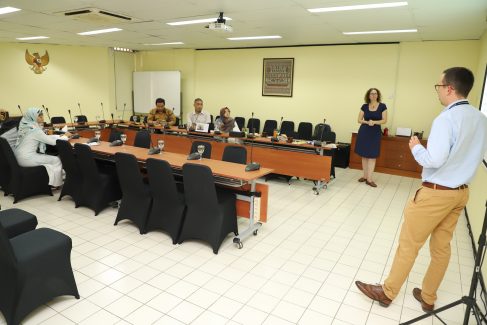The Role of Certification on the Development of Circular Economy and Sustainable Production
Hatfan Hizriyan Syaidan ~ International Office FEB UI
Nino Eka Putra ~ Humas FEB UI
DEPOK – Department of Economics FEB UI on Wednesday, November 13th, 2019 organized a guest lecture about “The Circular Economy and Challenges of Sustainable Production: Cases from Horticultural Supply Chain” in Soenario Kolopaking Auditorium, Dekanat Building. The guest lecturer was Dr. Jill Timms, associate of the Centre for Business in Society, Coventry University, UK.
Dr. Jill opened the lecture session by introducing her background and hometown which on a beautiful rural area far away from the capital, London. The background and hometown introduction were important since it explained why she pursued her research about circular economy and sustainable production, especially in horticultural supply chain. After that, she brought the discussion regarding the impact of certification trends on the development of circular economies and the role these standards play in reducing food waste in the supply chain.
Then she demonstrated example from her own research about the impact of certification in flower industry in the UK. When customer buying flowers they might only care about its beauty, and perhaps didn’t realize there are social and environmental risks associated with the production of flower such as the use of chemicals, tight working hours and food waste. Thus, for circular economy approach to be achieved, supply chain certification and standards should include the array of social and environmental risks associated with food waste and sustainable production. Also, it is necessary that stakeholders at all points in the chain need to collaborate to facilitate this to happen.
We all hope this lecture can raise the importance of certification in the supply chain to develop circular economy and sustainable production. Even more, it can foster concern that the products that we consume have gone through ethical process, treatment and workmanship. (Des)










